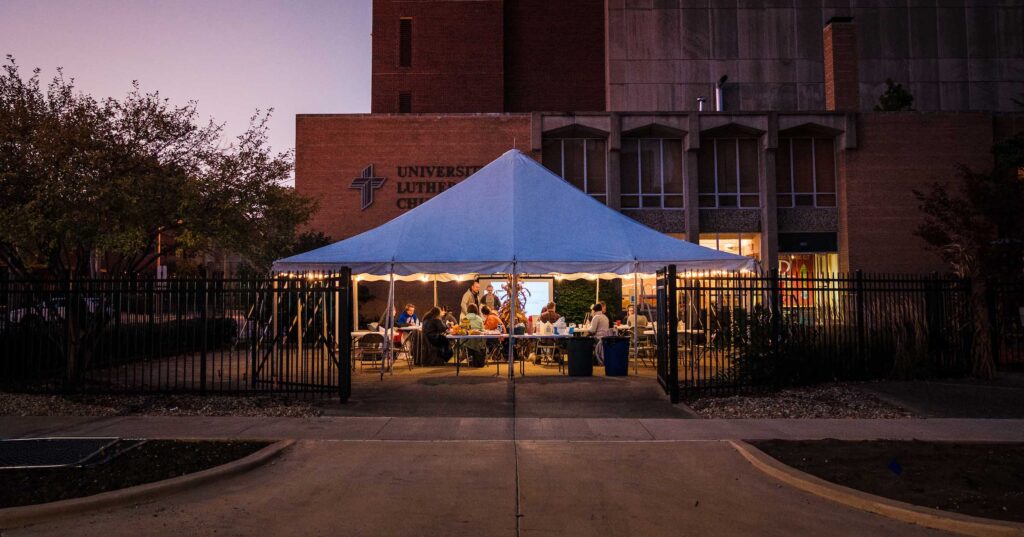The bad news
Teenagers today deal with problems the oldsters never had to think about. There are three major game changers: social media, COVID-19 and their lousy interactions with each other. But a prophet of our own time once said, “Knowing is half the battle.” So, let’s take a look.
The internet is a temptation the ancients didn’t have. They never had the comfort of pretending to be absorbed in serious phone business to avoid social interaction. Neither did the opinion of faceless and unknown thousands drive them to despair. They never considered false pretend interactions more valuable than face-to-face conversations.
COVID, too, is new. Although this year’s freshmen enter college under loosened restrictions, they are also childhood survivors of the COVID experience. They have lived through long months of mandated masking, screen-staring and isolation. They come from households whose views may vary widely regarding the masking, vaccine and other COVID protocols.
The pandemic drove many to the internet, to screens and thus to lousy social interactions. We all needed something, and the internet was allowed and available for most. Instagram was better than nothing. Gaming became socializing. Stopgaps became solutions. We doubled down on social media as our access to human contact.
The good news
Colleges need students to have good experiences. A good real-life experience is always better than a good internet experience. Universities know this and work to provide this, or at least recruit on the promise of a positive experience.
Parents, grandparents and other interested parties want more for their college student than merely a good time. Here’s how you can help: Talk to your high school grad about social media and social interaction. Help her think about and make a plan to regulate screen use. Talk him toward the idea that time online is not as good as time spent sweating and laughing with other live humans — who are idiots, jerks, crazy, mostly wrong and the best people you’ll ever know.
Additionally, as youth grow up, they should prioritize the mastery of subjects and skills over the mastery of devices and screens. This will usually correspond with grades and evaluations that are considered “good.” Mention this, if needed, at some point.
An action item
The trials and temptations that confront our youth look different, due to technology and format, than they did in the past, but they have not changed fundamentally. The wisdom and perspective of age is as valuable as ever. The Ten Commandments still guide the Christian life.
When old people hear about “a chaste and decent life,” they can feel particularly ill equipped to help. Anyone who didn’t grow up with internet porn may think they are limited in their ability to understand and equip the young people they love to deal with this temptation. Someone raised in the house of God is oriented to recognize every ancient sin in any new packaging. They understand it because the Law has been taught to them and written on their hearts. Explicit clarity on pornography is surely needed, but we should more importantly teach young Christians the truth of the Word of God.
The Spirit draws each catechized believer to church to avail himself of the Means of Grace. A Christian, however young, naturally prays that God would not let her heart incline to any evil thing, nor yet be occupied in wickedness with evildoers.
Trust in the Holy Spirit’s regenerating work does not permit lazy abandonment of the believer’s participation in sanctification, or the willful ignorance of sin’s strength. The temptations young people face are frighteningly real. They should be recognized as such. They are temptations, not morally benign weaknesses, accidents of personality or problems of history. There is a reason that “trials and temptations” get clumped together by poets. Every trial is an opportunity for temptation. And leaving home is a trial. It’s scary to attempt and scary to watch.
What else can we do but pray? It is the first and last resort. Prayer is — for the Christian parent, grandparent and godparent; for the Christian sibling and the Christian friend; for the Christian — an action item. Give your time to this task. Pray for the young person you love who is entering adult life. Pray that the Lord would bear him up. Pray that the Holy Spirit would breathe energy and power into her pious resolutions. Pray that all would be well with this son of the church, this daughter of Christ.
Post Script: A stranger once advised me to “put feet under my prayers.” If you want to help a young person who will soon be leaving home, the best practical step you can take is to ensure that he or she has zero impediments to attending the Divine Service every Sunday. Have a transportation plan and connect with members of a faithful congregation before you leave your hatchling at the new dorm or apartment. The Christian people who habitually attend that Divine Service will want to love the person you love. There are a lot of people putting feet of sympathy, hospitality and help under the prayers we all offer each Lord’s Day. How beautiful.
Other Post Script: Isn’t the real problem with kids leaving home that they come back woke? Maybe, but wokeness isn’t new. It is a virulent strain of classic anti-Christianity boosted by a friendly philosophical milieu, social environment and technology. Dutiful parents, pastors and congregations are responding with catechesis and exhortation that directly address woke temptations. This is one of the necessary steps toward helping young Christians remain healthy. Another step grows out of recognizing that the main driver of wokeness for most young people is not half-cringe professors and campus lectures they won’t attend. It is social media influencers and super nice co-workers and friends wearing rainbow gear. In both cases, choices regarding one’s neighborhood are crucial. Some schools and employers are composed of more morally hostile neighbors than others. Malevolent neighbors online are easy to avoid if one has the stamina to mute or block them, to say nothing of staying away from unsanitary subdivisions of social media or putting down one’s phone more often.




I thought Rebekah Curtis’ article was excellent and offered some very good advice. If you don’t know what “wokeness” is, Stephen, I can’t help but wonder, even just a little, if you’re paying any attention to what’s going on around you. Anyhow, I agree that helping your child to find a good LCMS church, which he or she can attend weekly, is key since it’s important to keep the faith active and vibrant. There are many temptations, after all, and Satan knows a person’s weaknesses and I’m sure he wants to exploit them. Kids are precious of all ages and they now live in a world where cultural norms have radically changed (over the years) and some of those “norms” are often pretty much shoved in their faces, even those of the little ones. But our faith can and does make a great difference and so does passing it on. There will be challenges for them but I pray that God will bless and keep these kids their whole lives through. BTW, have to say, I’m so thrilled to see the young people of every race who attend Lutheran schools (grade school to college) as they sing to the glory of God (on Worship Anew which I DVR every Sunday. Hey, I like getting two sermons a day.) 🙂 It’s wonderful!!!
This was a helpful article until the rant on “woke” appeared as a by-the-way at the end. Perhaps the writer is spending too much time with Fox and not enough with Philippians. Nonetheless, our large Lutheran campus ministry provides kids with the emotional and spiritual support and community they need to thrive in college. Prayers from parents and grandparents are important but a supportive local Lutheran community is even more important. A far more insidious threat than becoming “woke” is being converted to Evangelicalism or worse, where “prosperity gospel”, consumer Christianity, and other pitfalls await. A vibrant, articulate and emotionally intelligent Lutheran campus presence can help kids navigate around these rocks and emerge healthy, orthodox and committed. And yes, most of them during college years will be exposed to “wokeness” (whatever that is) and emerge as more broadminded and accepting of racial, ethnic, social class and sexual minorities than when they began, to their everlasting benefit.
Stephen,
The author took the need for a Lutheran community as a given, in part because we recently published an article on this topic (https://witness.lcms.org/2022/clinging-to-christ-in-the-exciting-college-years/). But yes, of greatest importance is finding a local Lutheran congregation.
In my estimation, a good local LCMS congregation is even more vital than the selection of the school. Even if it’s the best school in a particular field, it’s absolutely worthless if there’s not a local Lutheran church to encourage your child in the faith. In fact, in this podcast (https://www.kfuo.org/2022/07/12/lutheran-witness-podcast-kansas-district-convention-part-part-2-nones-and-the-our-witness-in-the-home/) I said that if there’s not a faithful Lutheran church in the area, then your child should not attend that school. Period. No questions asked.
So yes, a local church is of vital importance.
RSA
Don’t expect another church or friend or relative to connect meaningfully with that college kid that you want the best for. Take courage, pray for help, and connect meaningfully yourself.
Take time for more than a passing greeting. Have actual conversations. Express genuine interest in different aspects of their college life — classes, clubs, faith, dating, etc. Try: “When I was in college, we had…. What’s that like for you?” Enjoy the comparisons. Listen long and well. Ask what’s in the future for them. Notice what challenges them. And if you think they can benefit from your experience responding to a particular situation, share your learning with humility.
P.S. The author claims that “the main driver of wokeness…is social media influencers and super nice co-workers and friends wearing rainbow gear.” What is the source of that assessment?